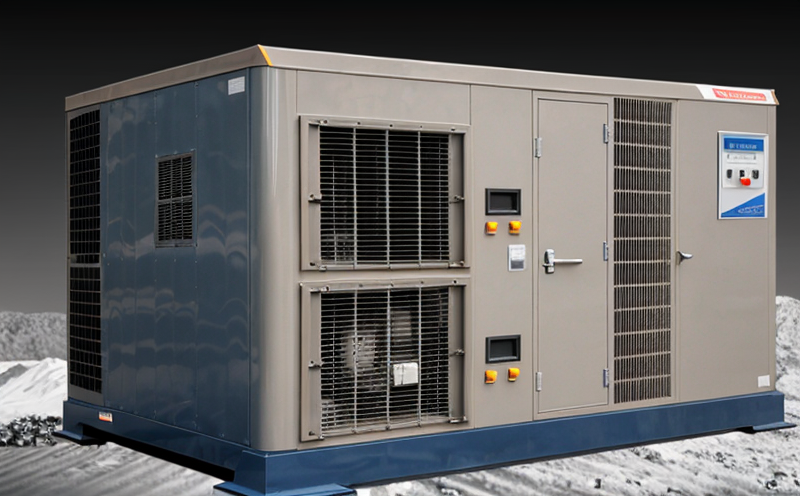JEDDEC JESD22-A140 Burn-in Testing under Thermal Stress Conditions
The JEDEC JESD22-A140 standard is a critical procedure for the burn-in testing of semiconductors and microchips. This process ensures that components operate reliably by subjecting them to extreme thermal stress conditions before they are integrated into end products. This article provides an in-depth look at this service, its significance within the semiconductor industry, and how it contributes to quality assurance.
The primary goal of burn-in testing under thermal stress is to identify latent defects that may not be evident during normal operating conditions. By applying controlled thermal stresses, manufacturers can accelerate the failure process of defective components, thereby improving product yield and reliability. This service plays a pivotal role in ensuring that semiconductor devices meet stringent industry standards and customer expectations.
The testing procedure involves subjecting the microchips to a range of temperatures and voltages, often exceeding their normal operating limits. This stress testing helps in identifying weak points in the manufacturing process or inherent design flaws. The JEDEC JESD22-A140 standard specifies detailed parameters for temperature cycling, power supply levels, and duration, ensuring consistent and reproducible test results.
Microchips are typically tested under these conditions until a predetermined number of failures or the maximum allowable time is reached. This process not only enhances product reliability but also reduces warranty costs and improves overall customer satisfaction. By adhering to this standard, manufacturers can provide products that meet the rigorous demands of various industries.
The JEDEC JESD22-A140 burn-in testing service involves several key steps:
- Preparation of the microchips for testing
- Setting up the test parameters according to the standard
- Subjecting the chips to thermal stress conditions
- Data collection and analysis
- Reporting results and recommendations
The success of this service hinges on precise instrumentation and skilled personnel. The use of advanced test equipment ensures accurate measurement and data collection, which are crucial for reliable testing outcomes.
JEDDEC JESD22-A140 burn-in testing is essential in various sectors such as automotive, aerospace, consumer electronics, and industrial manufacturing. In these industries, the reliability of microchips can significantly impact product performance and safety. By ensuring that components meet stringent quality standards, this service contributes to the overall success of products within these sectors.
Understanding the implications of thermal stress testing is crucial for those involved in the design and production of semiconductors. This process not only enhances the reliability of individual components but also supports the development of more robust systems as a whole. By incorporating this service into their quality assurance processes, manufacturers can gain a competitive edge by delivering high-quality products that meet international standards.
Eurolab Advantages
JEDDEC JESD22-A140 burn-in testing under thermal stress conditions is a vital service offered by Eurolab. Our expertise in this field sets us apart, ensuring that our clients receive accurate and reliable test results.
- Comprehensive Testing Capabilities: Eurolab provides advanced testing solutions tailored to meet the unique needs of various sectors.
- ISO/IEC 17025 Accreditation: Our laboratory adheres to strict quality standards, ensuring consistent and accurate test results.
- Expert Technical Knowledge: Our team comprises highly skilled professionals with extensive experience in semiconductor testing.
JEDDEC JESD22-A140 burn-in testing is just one of the many services we offer. Eurolab's commitment to quality and reliability ensures that our clients receive accurate, reproducible test results every time.
Quality and Reliability Assurance
The JEDEC JESD22-A140 burn-in testing under thermal stress conditions is a cornerstone of quality assurance in the semiconductor industry. This service ensures that microchips meet stringent reliability standards, enhancing product performance and reducing warranty costs.
By adhering to this standard, manufacturers can provide products that are not only reliable but also meet international quality standards. This contributes significantly to customer satisfaction and overall business success.





